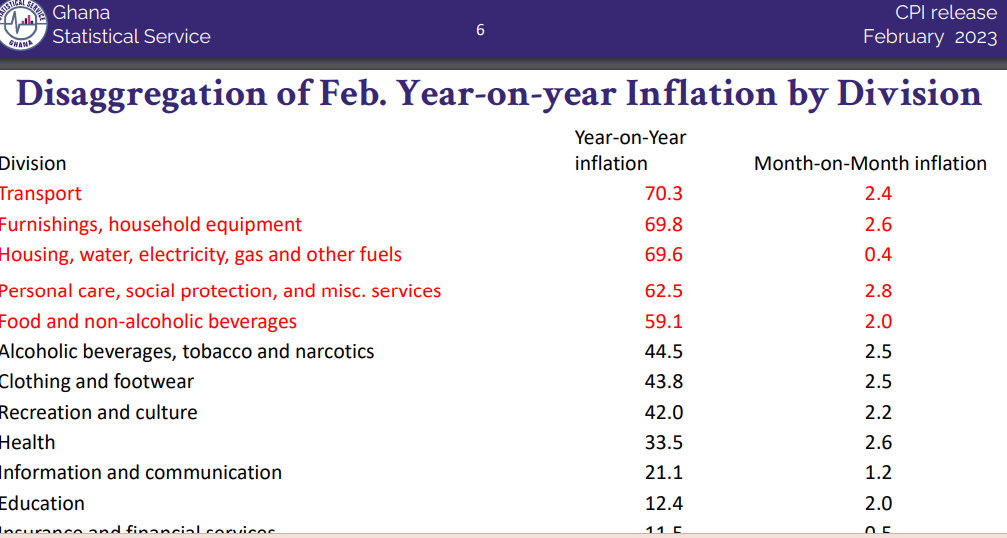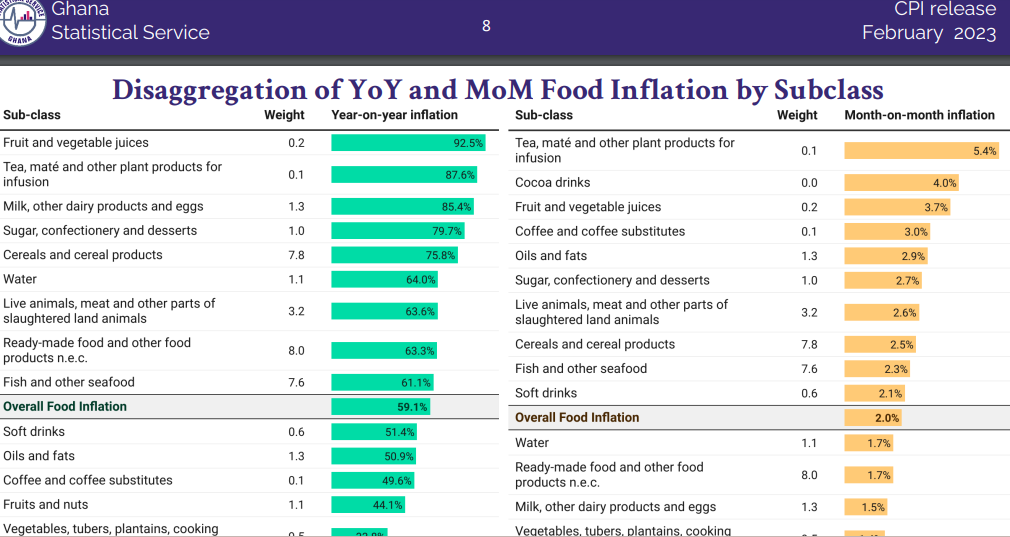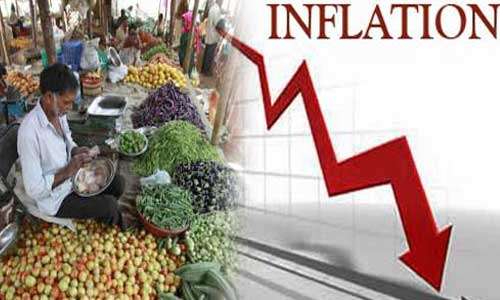Year-on-year Inflation for the month of February 2023 slowed down to 52.8%, the Ghana Statistical Service has pointed out.
This is a reduction from the January 2023 estimate of 53.6%, which was influenced by the fall in inflation of transportation and other non-food items.
This is the second consecutive time that the rate has dropped in 20 months. In January 2023, inflation fell marginally to 53.6%, from 54.1% recorded in December 2022.
Five divisions recorded inflation rates higher than the national average. They are Transport (70.3%); Furnishings, Household Equipment (69.8%); Housing, Water, Electricity, Gas and Other Fuels (69.6%); Personal care, Social Protection and Miscellaneous Services (62.5%) and Food and non-Alcoholic Beverages (59.5%).

For food inflation, Fruits and Vegetables recorded the highest inflation of 92.5%, whilst Cocoa Drinks recoded no inflation.
Whilst Food Inflation went down by 0.437% to 59.1%, Non-food Inflation remained was 47.9%.

The month-on-month inflation between January 2023 and February 2023 was 1.9%.
Also, inflation for locally produced items was 49.0%, inflation for imported items was 62.3%.
Addressing Journalists on the new rate, Government Statistician, Professor Samuel Kobina Annim hinted that the reduction is a confirmation of a sustained downward trend in the rate of inflation so far this year.
Prof. Annim, however, explained that even though food was the fifth item that recorded inflation rate higher than the national average, its weight of 43.7% meant it contributed more to the national rate. This translated into a 48.1% in February 2023.
Greater Accra records highest inflation
The Greater Accra region recorded the highest inflation of 60.1%, whereas the Volta region recorded the lowest rate of inflation of 35.4%.
The Ashanti region recorded an inflation of 43.3% and Western region recorded an inflation of 49.2%.

Source: Joy Business

